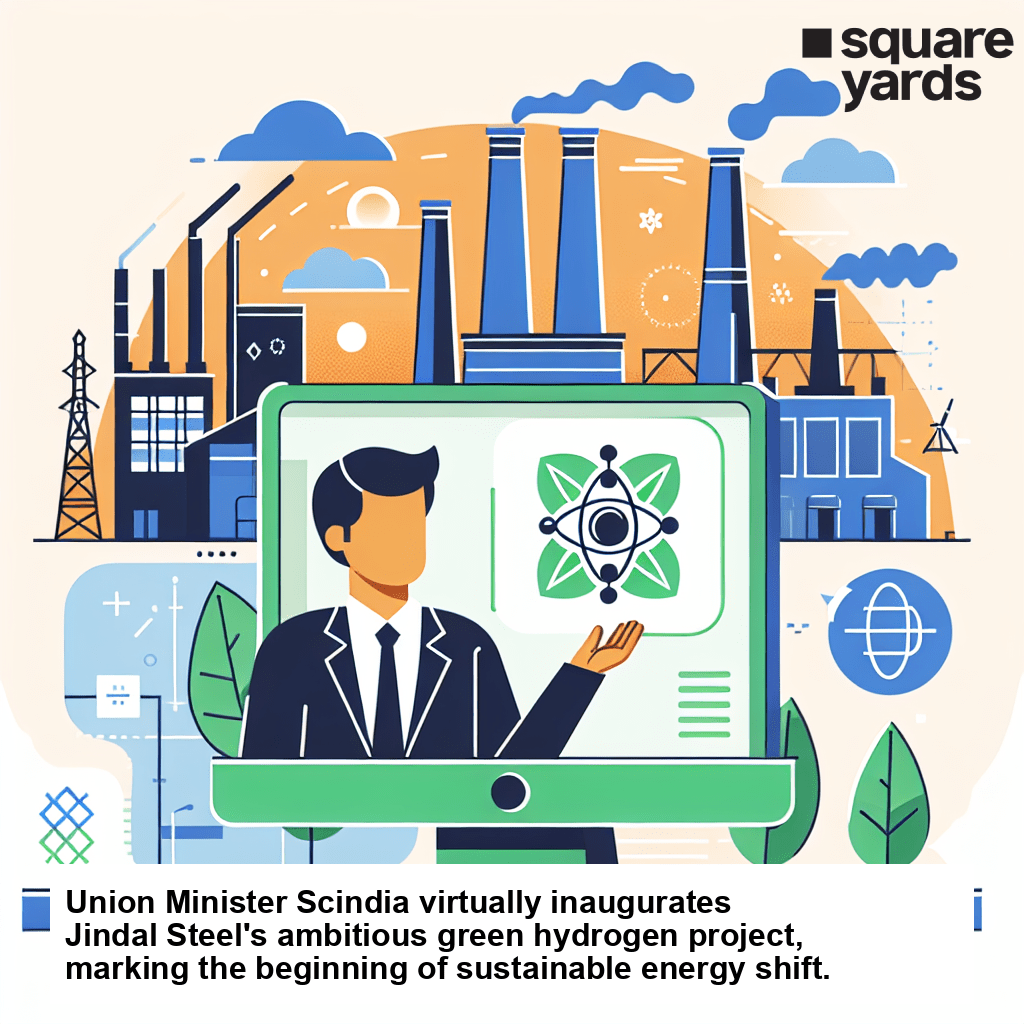Jyotiraditya Scindia, the Union Minister, virtually inaugurated Jindal Steel Ltd’s (JSL) first green hydrogen project located in Hisar, Haryana. This groundbreaking project, which was launched on February 27, 2024, aims to make a significant contribution towards reducing carbon emissions. By leveraging green hydrogen technology, JSL envisions a reduction of approximately 2,700 metric tonnes of carbon emissions annually, resulting in an impressive total of 54,000 tonnes over a span of 20 years.
Partnership for a Greener Future
August 2022 saw JSL announce a vital partnership with Hygenco India, as both companies recognized the pressing need for sustainable energy sources. This collaboration paved the way for the establishment of a cutting-edge green hydrogen plant. In light of the transition from thermal to clean energy, Abhyuday Jindal, the Managing Director of JSL, expressed his vision for the company’s rigorous commitment to ESG (Environmental, Social, and Governance) practices. Prioritizing net zero emissions and energy conservation has remained a paramount goal for JSL throughout its journey. Embracing Innovative Solutions
Advantages and Potential Impact
The adoption of green hydrogen holds tremendous advantages for JSL and the overall energy landscape. By shifting focus to this transformative technology, the company is asserting itself as a forerunner in minimizing the environmental impact caused by carbon-intensive processes. Apart from reducing harmful emissions, JSL’s green hydrogen project will contribute positively to various ecological parameters. This initiative has the potential to inspire and establish a benchmark for other industries aiming to achieve sustainability, reinforcing JSL’s role as a responsible industry leader. The cascading effects are not merely limited to JSL’s operations but extend to the supply chain, promoting an environment of eco-conscious partnerships.
The Road to Carbon Neutrality
Fostering a Bright and Sustainable Future JSL’s investment in clean and innovative tech-based solutions forms a crucial aspect of the company’s long-term vision for sustainable growth. By embracing green hydrogen technology and transitioning from conventional energy sources, JSL aligns itself with global paradigms of corporate responsibility and environmental stewardship.
Furthermore, the company’s commitment to ESG practices signifies an integrated approach, recognizing that environmental, social, and governance factors are interdependent and essential for long-term prosperity. As part of the industrial sector, JSL plays a pivotal role in ensuring that sustainable practices shape the very heart of our economic progress.
Conclusion The inauguration of JSL’s first green hydrogen project is a significant step towards a greener future. By leveraging green hydrogen technology, JSL seeks to reduce carbon emissions and demonstrate the viability of sustainable energy practices. This initiative not only helps mitigate harm to the environment but also serves as an inspiration for other industries, further propelling the shift towards a cleaner, more sustainable India. As JSL continues to champion environmental stewardship and corporate responsibility, it sets forth a compelling example for other companies to follow in our collective pursuit of a carbon-neutral future.






















